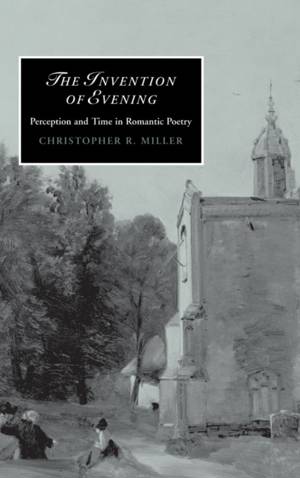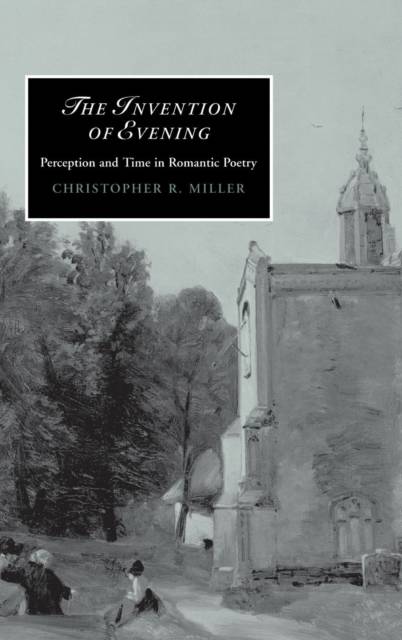
- Afhalen na 1 uur in een winkel met voorraad
- Gratis thuislevering in België vanaf € 30
- Ruim aanbod met 7 miljoen producten
- Afhalen na 1 uur in een winkel met voorraad
- Gratis thuislevering in België vanaf € 30
- Ruim aanbod met 7 miljoen producten
Zoeken
€ 115,45
+ 230 punten
Uitvoering
Omschrijving
Lyric poetry has long been considered an art form of timelessness, but Romantic poets became fascinated by one time above all others: evening, the threshold between day and night. Christopher R. Miller investigates the cultural background of this development. The tradition of evening poetry runs from the idyllic settings of Virgil to the urban twilights of T. S. Eliot, and flourished in the works of Coleridge, Wordsworth, Shelley and Keats. In fresh readings of familiar Romantic poems, Miller shows how evening settings enabled poets to represent the passage of time and to associate it with subtle movements of thought and perception. This leads to new ways of reading canonical works, and of thinking about the kinds of themes the lyric can express.
Specificaties
Betrokkenen
- Auteur(s):
- Uitgeverij:
Inhoud
- Aantal bladzijden:
- 278
- Taal:
- Engels
- Reeks:
- Reeksnummer:
- nr. 66
Eigenschappen
- Productcode (EAN):
- 9780521863827
- Verschijningsdatum:
- 9/10/2006
- Uitvoering:
- Hardcover
- Formaat:
- Genaaid
- Afmetingen:
- 165 mm x 234 mm
- Gewicht:
- 576 g

Alleen bij Standaard Boekhandel
+ 230 punten op je klantenkaart van Standaard Boekhandel
Beoordelingen
We publiceren alleen reviews die voldoen aan de voorwaarden voor reviews. Bekijk onze voorwaarden voor reviews.











